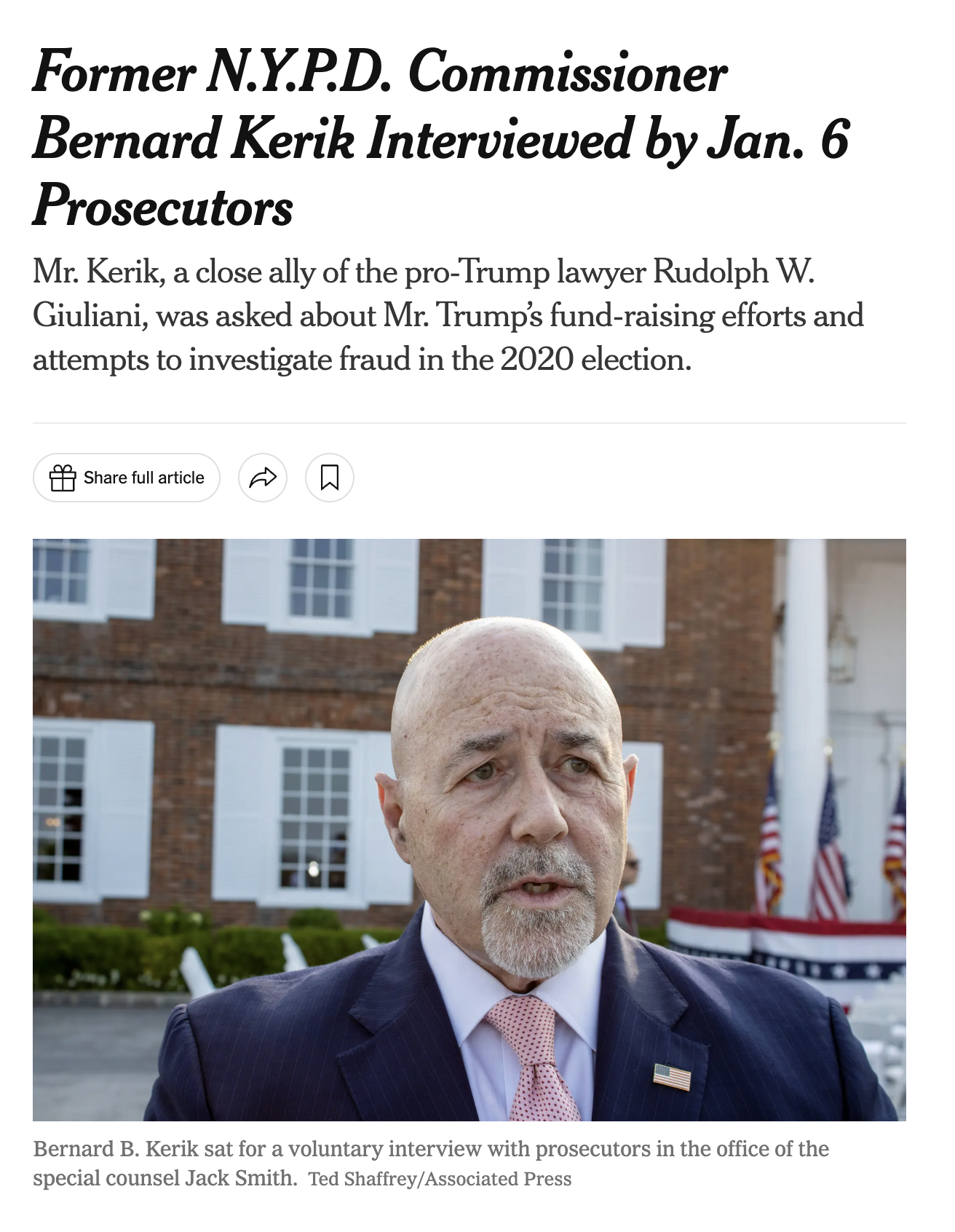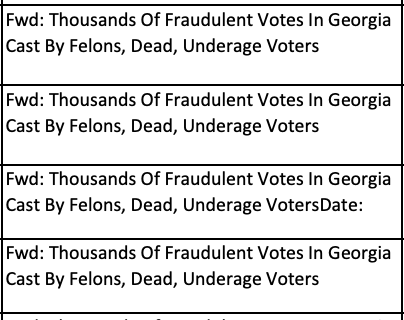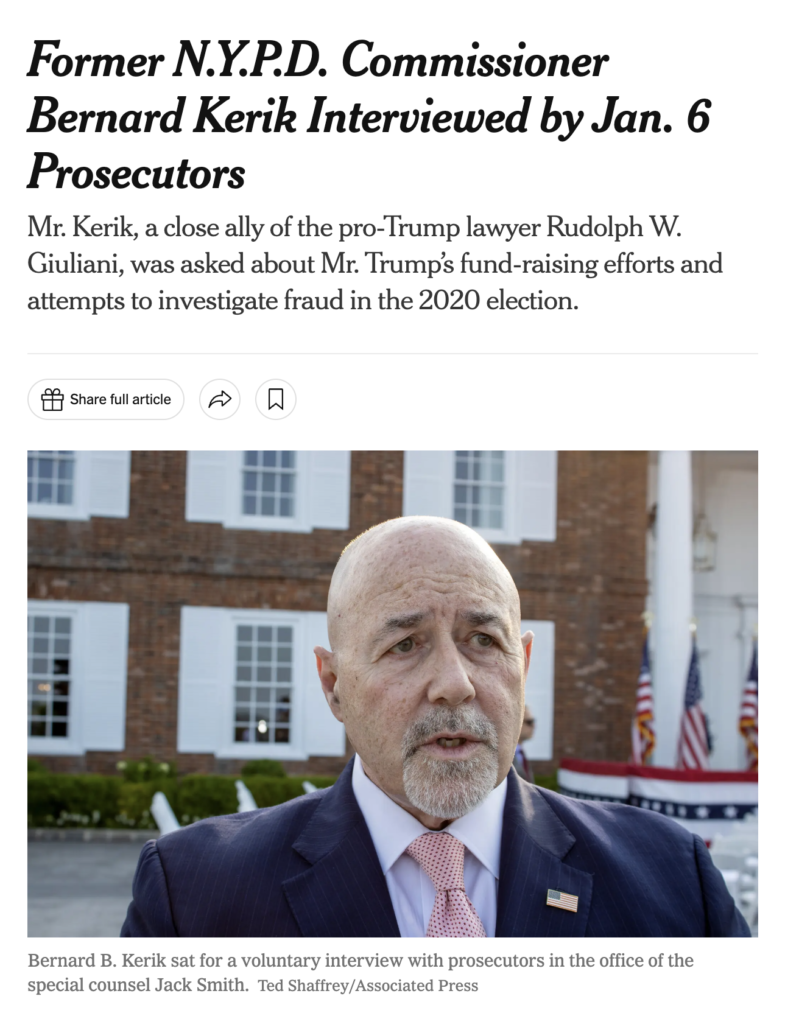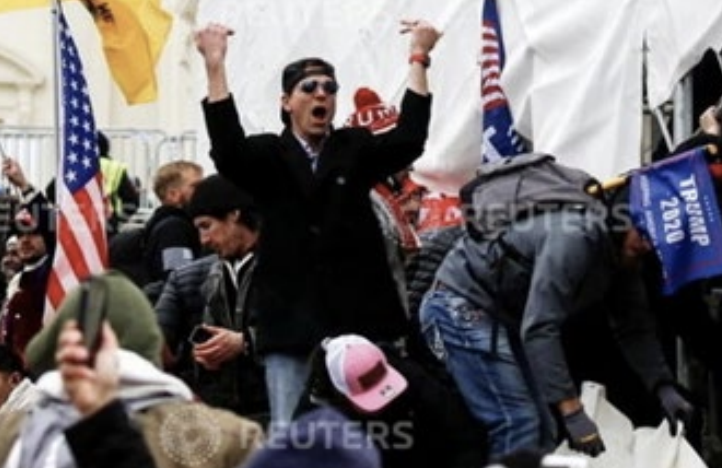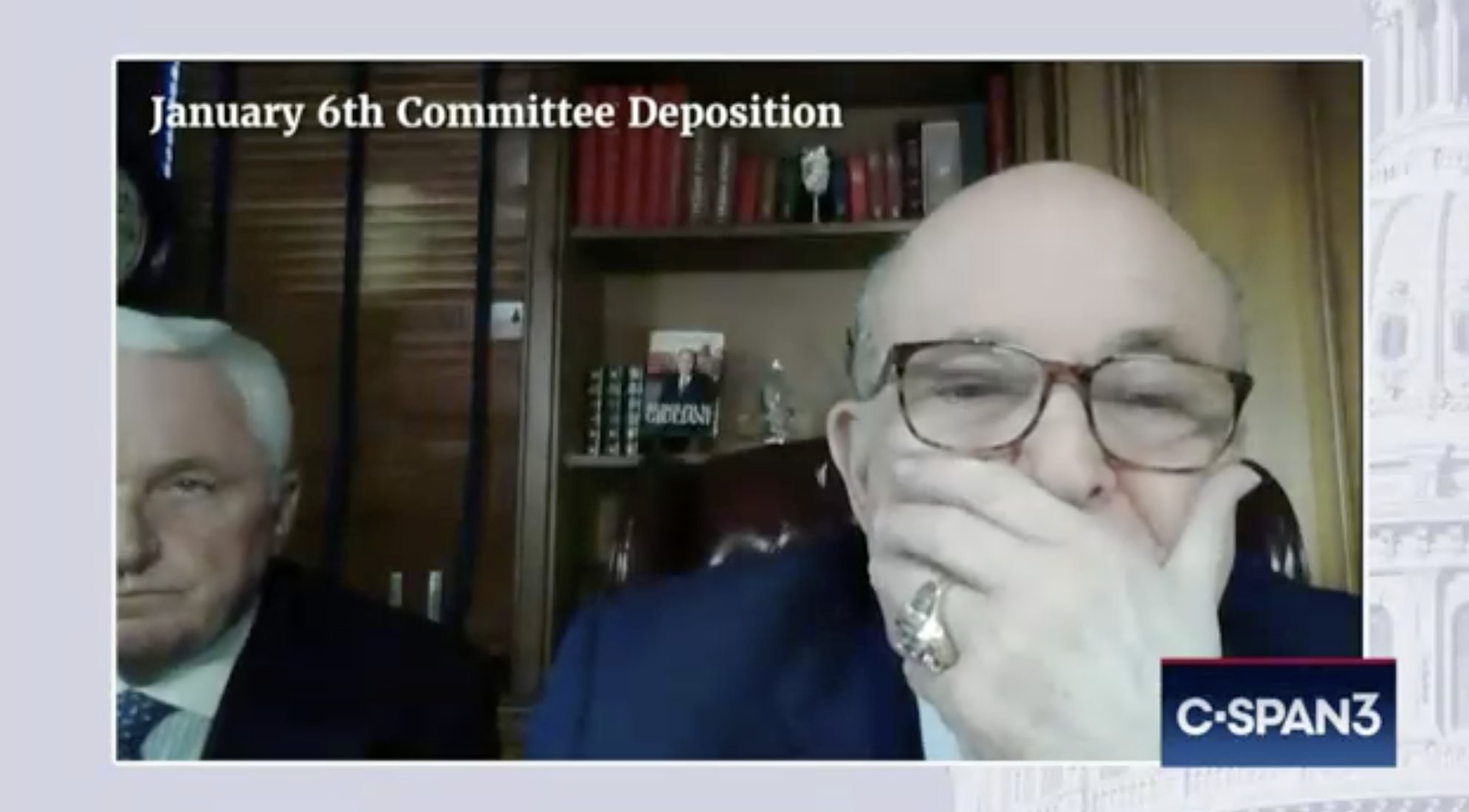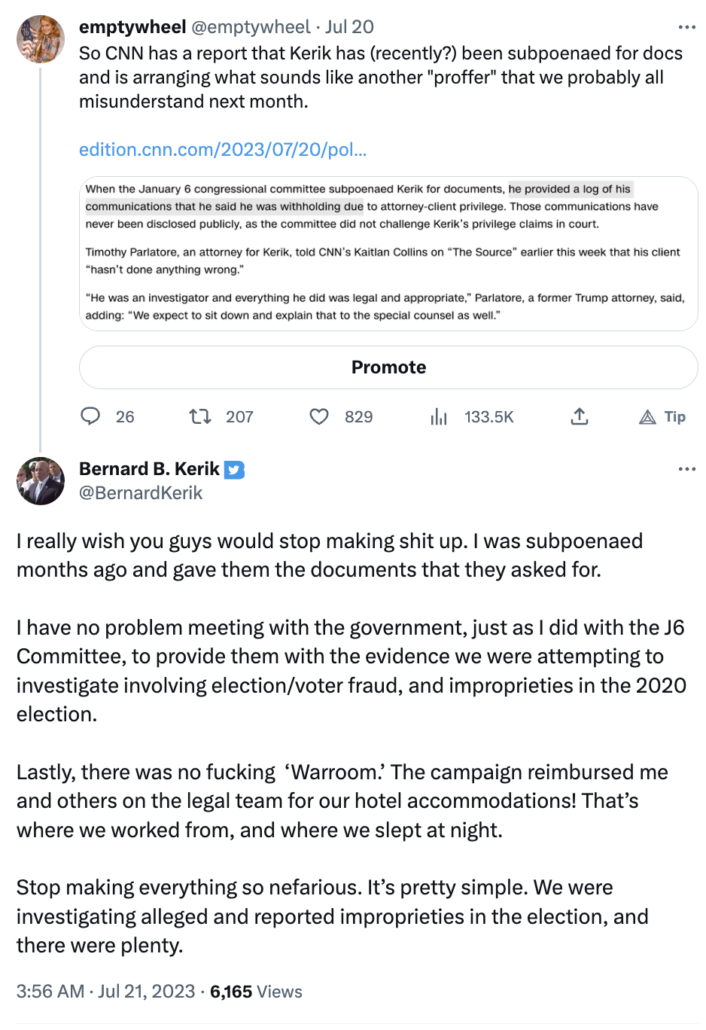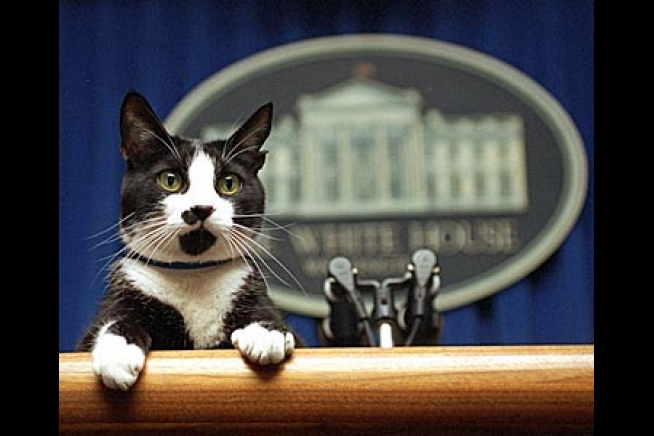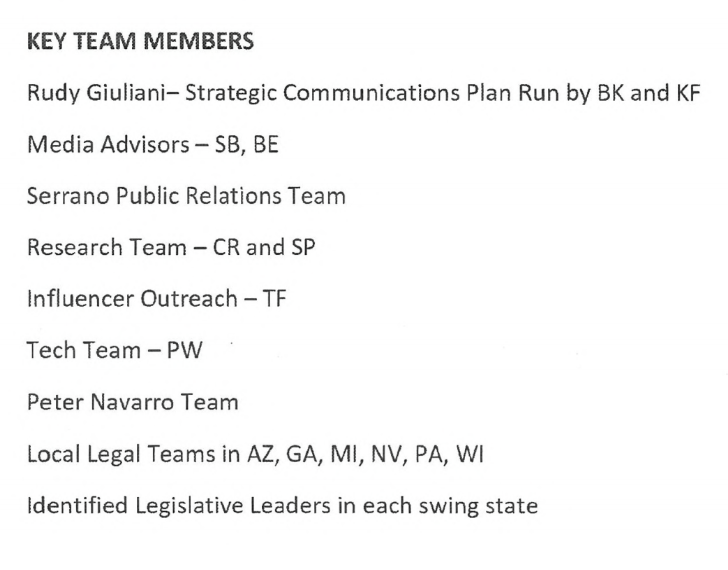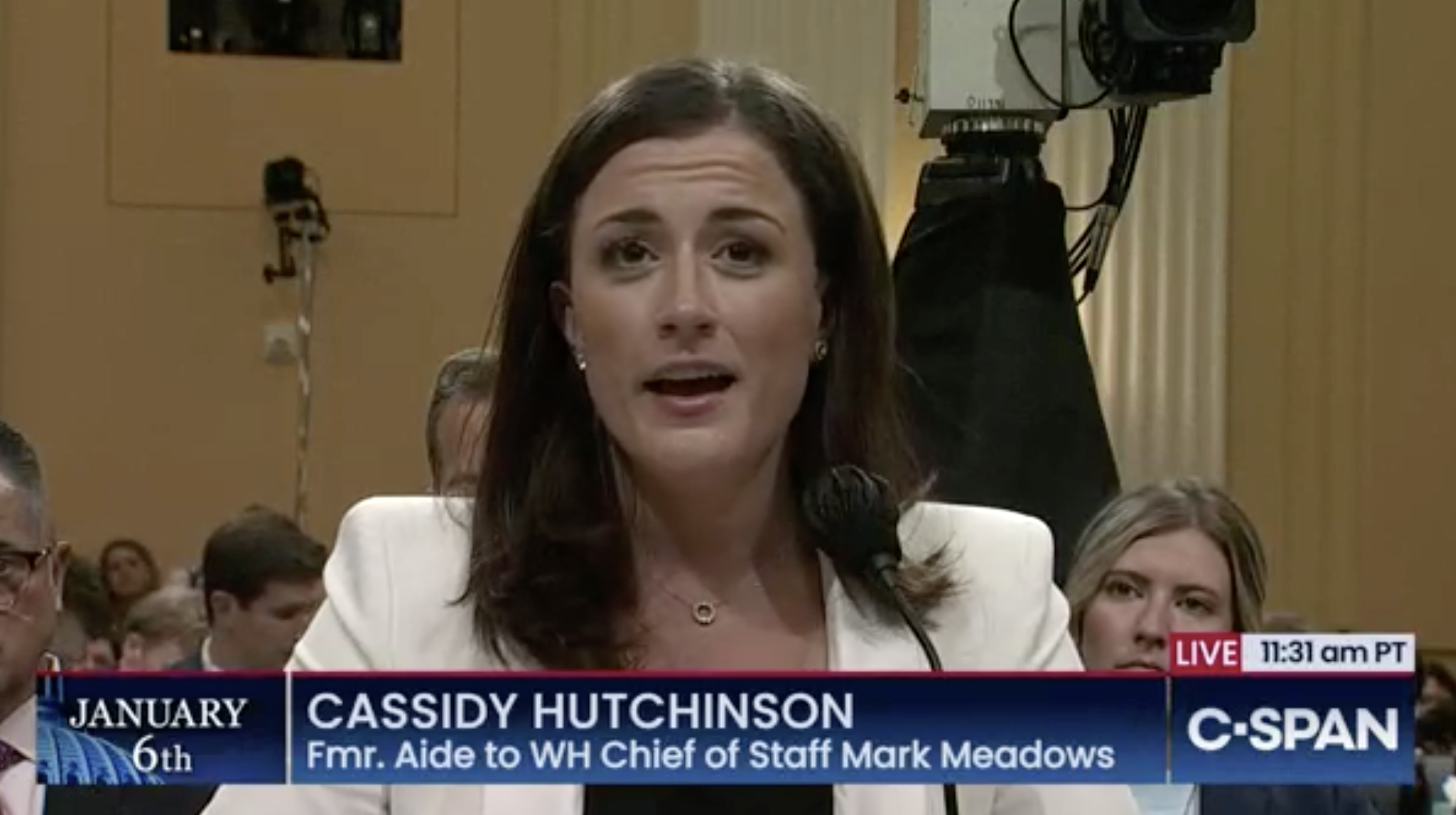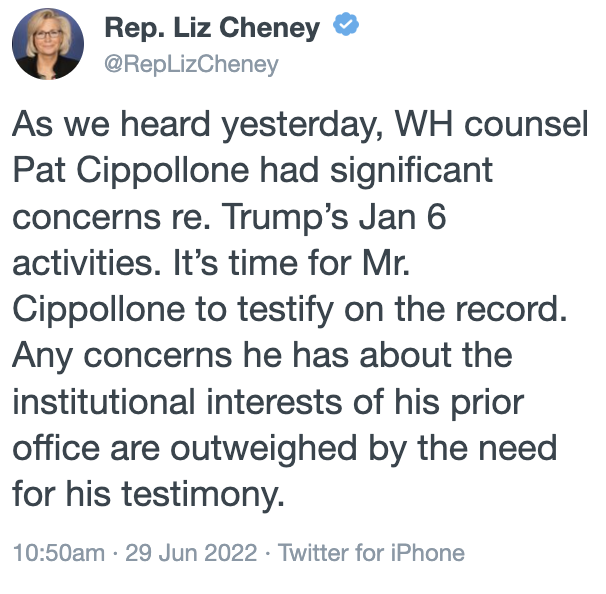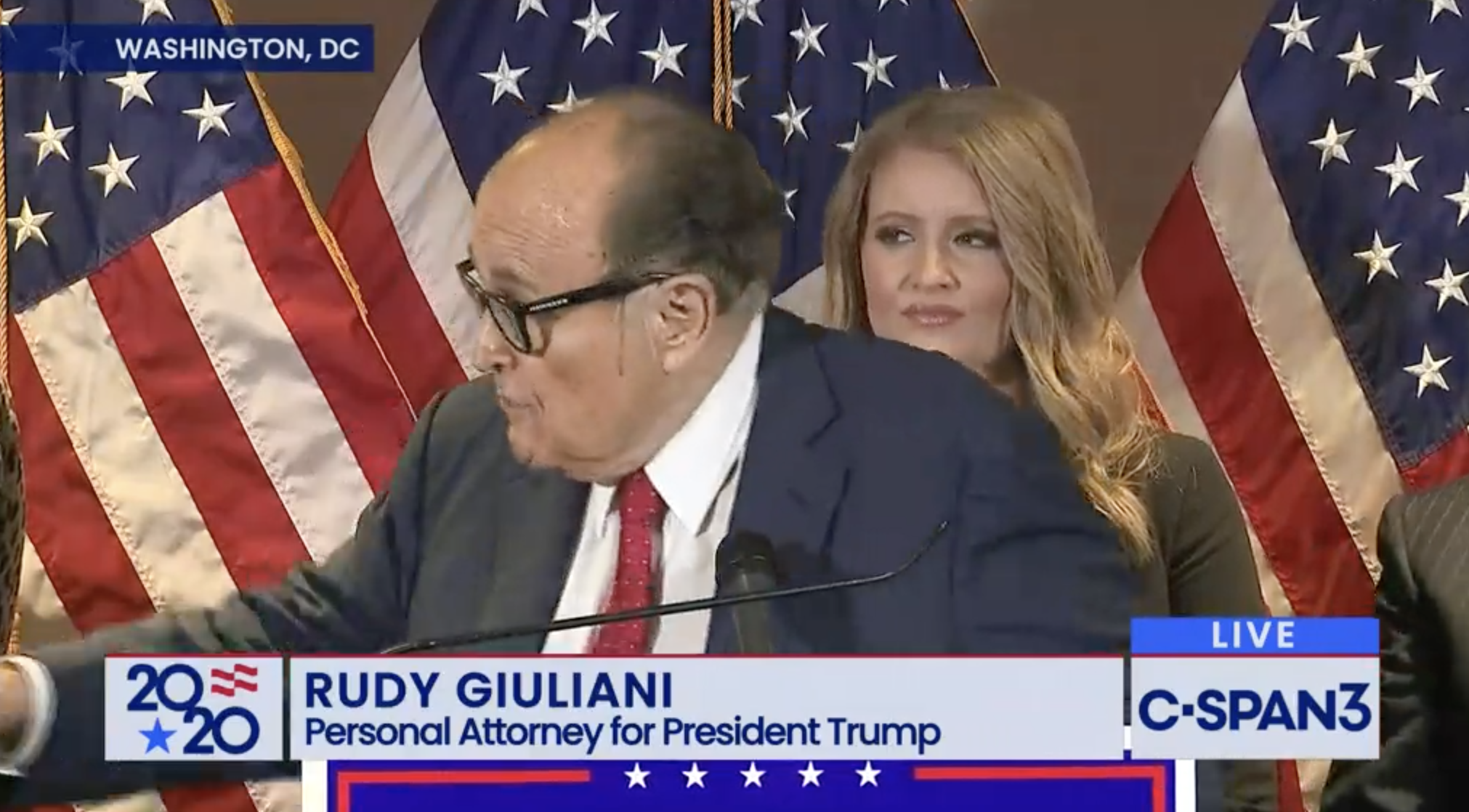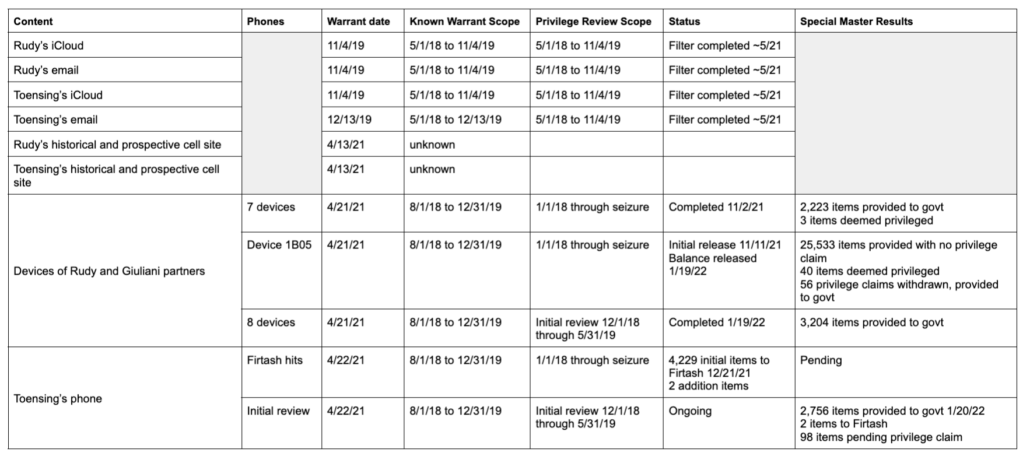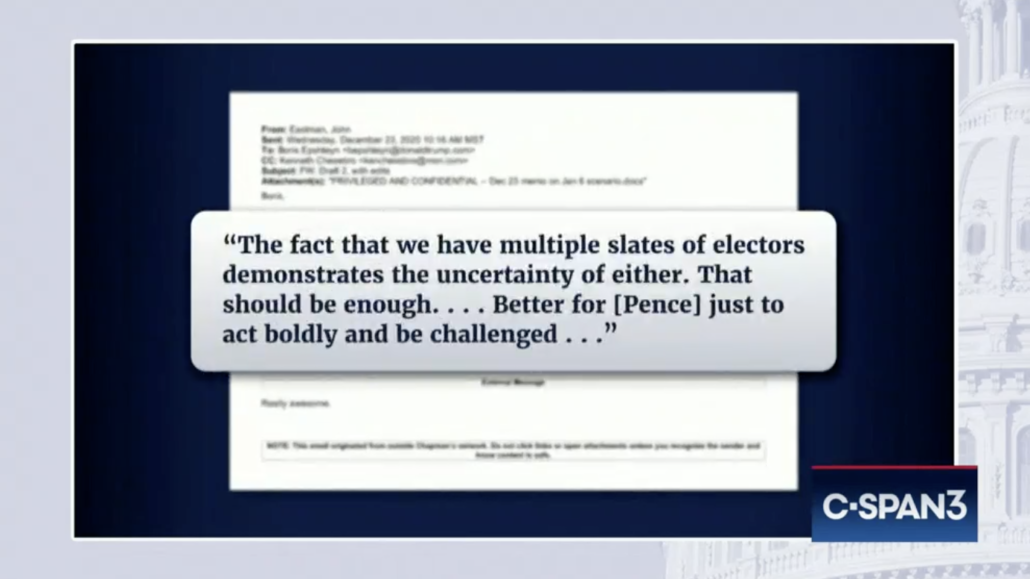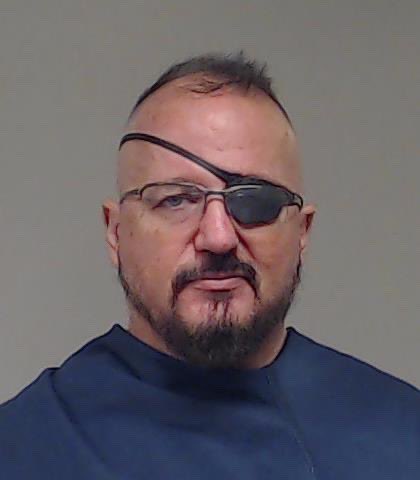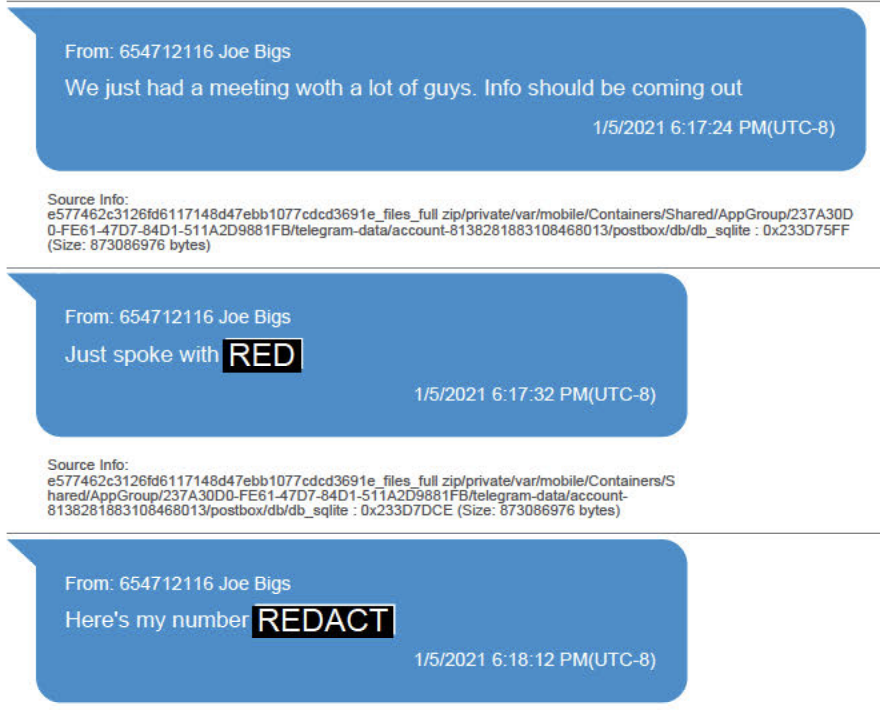Pardoned Felon Bernie Kerik’s Three Stories
Before I lay out the three different versions of Berie Kerik’s testimony with Jack Smith’s prosecutors last Monday, I want to make a separate observation. After turning a bunch of documents over to Jack Smith, Kerik’s stance regarding the privilege claims in the Ruby Freeman lawsuit changed.
Previously, he had said that the privilege was Trump’s and Trump had to decide.
But first on July 24 (three days after Kerik handed over documents to Jack Smith’s team) and then again in a status filing filed on Friday, August 4, he consented to let Beryl Howell review any that Freeman’s attorneys still contested, though Trump’s lawyers will get to challenge her decisions.
Following the Court’s order, on July, 23, Mr. Kerik produced a privilege log, (the “Revised Privilege Log”), see Exhibit 1, and 562 documents previously withheld as privileged (the “Previously Withheld Documents”) that were de-designated by the Trump Campaign. ECF. No. 83 at 2. On July 24, 2023, after meeting and conferring, Plaintiffs and Mr. Kerik filed the Joint Stipulation where the parties agreed that:
• should Plaintiff choose to challenge the privilege designation for any documents in the Revised Privilege Log, “Mr. Kerik takes no position and consents to their disclosure for in camera review by the Court;”
Freeman’s attorneys are asking Howell to review everything (unless Howell rules that Rudy has defaulted on the whole suit).
Plaintiffs have now reviewed the 562 Previously Withheld Documents and the Revised Privilege Log. It is Plaintiffs view, having completed this review and consistent with Plaintiffs’ predictions, that the vast majority (if not all) of the Previously Withheld Documents were not properly withheld as privileged. Apparently at the instruction of third parties, Mr. Kerik continues to withhold 318 documents based on both attorney-client and work product privilege. Plaintiffs have identified 97 documents that, on the face of the privilege log, appear not to be privileged, and also appear to be related to Plaintiffs’ claims. (See Ex. 2.) At minimum, Plaintiffs request that the Court should review these 97 documents in camera. However, because Plaintiffs’ assessment of what warrants further review is based on the descriptions in the Revised Privilege Log, and because Mr. Kerik previously logged documents which we not privileged, Plaintiffs respectfully submit that the more prudent course of action may be an in camera review of the full set of 318 documents. Mr. Kerik has previously stated that he has no opposition to this relief. See ECF No. 83 at 3.
It matters that Howell, who until March presided over the grand jury investigating Trump, would preside over that review.
Among the documents that Kerik is still withholding — at least from Freeman — is a document forwarding something from (!!!) 4Chan to both Kerik and Phil Waldron, alleging a Ukrainian role in Dominion Voting Systems.
Minutes after the 4Chan tip, Waldron and Kerik were also exchange claims that seem centrally pertinent to Freeman’s lawsuit.
Keep that in mind as you read the various stories that pardoned felon Bernie Kerik told the press about his testimony to Smith’s prosecutors.
The first version, from CNN, posted shortly after Kerik left the interview. Kerik’s lawyer, Tim Parlatore, claims that Kerik (who was receiving pitches from 4Chan) operated in good faith.
Kerik’s attorney Timothy Parlatore told CNN on Monday that Kerik told investigators about what Giuliani was doing in late 2020 to hunt down potential evidence of fraud that would show that Trump actually won a second term.
Kerik discussed “what the Giuliani team was doing” and “all the efforts they took at the time to take all the complaints of fraud, to see what they could do to chase them down,” Parlatore said. “Really kind of establishing that at that time, when they weren’t really able to necessarily establish proof, they had probable cause and they were pursuing investigation in good faith.”
Investigators also asked about the seven states that were the focus of Giuliani’s efforts, doing a deep dive on each state to understand the basis for making election fraud claims. Investigators went state by state, asking about each claim of fraud and what it was based on and who they talked to.
Monday marked first meeting with the special counsel team. Smith was not in the room during the closed-door interview, Parlatore said. The interview was conducted by three special counsel prosecutors and two FBI agents.
Parlatore scoffed at the idea Rudy would be charged, basing that claim on whether Rudy — who is trying to avoid further discovery in the Freeman suit by stipulating that the claims he made about Freeman tampering with the vote — knowingly lied about voter fraud, not if Rudy knowingly plotted with Ken Chesebro to set up fake electors.
Asked if he thinks Giuliani will be charged by the special counsel, Parlatore told CNN, “No, not a chance.”
“The idea that Rudy Giuliani was intentionally pushing claims he knew were false is not something supported by the evidence,” Paraltore said. In the 45-page Trump indictment, prosecutors say the co-conspirator that CNN has identified as Giuliani “was willing to spread knowingly false claims.”
CNN may have been the only outlet to note — in the very last paragraph — that Kerik was convicted of fraud and then pardoned by Trump.
Years before Trump became president, Kerik was federally indicted and pleaded guilty to tax fraud and related financial crimes. He served three years in prison, was released in 2013, and received a full pardon from Trump in 2020.
Contrast CNN’s acknowledgment that Kerik was convicted for fraud with NYT’s focus, instead, on his background as a cop.
The word “fraud” shows up seven times in the NYT story, because of its centrality to the charges against Trump. Never once does it mention Kerik’s past fraud.
Instead, NYT describes that if Save America PAC had paid Rudy’s team, their claims of fraud might actually have been vetted better. (Politico’s story also focuses on the financial aspect.)
Among the questions prosecutors asked Mr. Kerik were several related to Mr. Trump’s main postelection fund-raising entity, Save America PAC. The special counsel’s office has been drilling down for months into whether the political action committee raised millions of dollars on claims that there was widespread fraud in the election, but ultimately earmarked the money for things other than investigating those claims.
Mr. Kerik told prosecutors that the team Mr. Giuliani had assembled to look into the allegations of fraud received no money from Save America PAC, even though it was one of the chief groups assigned the task of hunting down evidence that the election had been marred by cheating, Mr. Kerik’s lawyer, Timothy Parlatore, said on Tuesday.
Mr. Kerik also told prosecutors that if Save America had provided money to Mr. Giuliani’s team, it might have more accurately vetted the claims of fraud, Mr. Parlatore said.
Remember: this was the topic of a subpoena sent to Rudy last year, how he got paid.
Friday, Rolling Stone put Kerik’s testimony at the center of a third story: how Trump’s associates are trying to make Sidney Powell the fall-gal for everything.
On Monday, Bernie Kerik — a longtime Rudy Giuliani associate and a Trump ally who worked on the Giuliani-led legal team challenging Trump’s 2020 defeat — sat with special counsel investigators for a roughly four-and-a-half-hour interview, according to his lawyer Tim Parlatore. (Parlatore previously served as a top attorney to Trump, advising the ex-president on Special Counsel Smith’s probes.)
“Based on the contents of their questions, and my understanding of criminal law, the main individual who was discussed who Mr. Kerik gave any information that could be incriminating would be Sidney,” Parlatore tells Rolling Stone on Thursday. Parlatore added that what Kerik told investigators included: “That there was no back-up for anything she said, that when she was asked to provide proof she didn’t produce anything, and when she was cut loose [from the official Trump legal team], how she kept trying to push her way in.”
[snip]
Kerik, a former New York police commissioner, is one of the individuals who recently described to federal investigators — among other topics — details regarding Powell’s private behavior as she aided Trump’s attempts to subvert the 2020 election outcome. According to Parlatore, the ex-commissioner did not mince words: “During Bernie Kerik’s interview with the special counsel’s office, the issue of a possible mental health break and change in her demeanor and personality was discussed,” the attorney says.
Parlatore adds that during the investigators’ multi-hour interview with his client, the word “lunatic” was indeed used to describe Powell.
[snip]
However, the intense nature of the recent line of federal questioning has led various witnesses, lawyers, and others intimately familiar with the situation to the conclusion that Powell likely has a heavy amount of legal exposure in the current stage of Smith’s probe.
Or, as one source who’s been in the room recently with federal investigators succinctly puts it: “Sidney’s fucked.”
Asked to comment on the source’s two-word characterization, Parlatore simply replied with his own two-word statement: “I agree.”
The focus seems to misunderstand how Sidney Powell functions in the indictment. The more Trump advisors say she was a lunatic, the more Trump’s reliance on her makes his conduct problematic.
NYT hit on this part of the story too. In its version, it said prosecutors had specifically asked about Waldron.
Prosecutors asked Mr. Kerik on what factual basis he believed Ms. Powell had filed her suits and he responded that he was unaware of one.
Prosecutors also asked Mr. Kerik about Phil Waldron, a former Army colonel from Texas who served as a kind of liaison between Ms. Powell and members of Mr. Giuliani’s team. Mr. Smith’s investigators wanted to know how seriously Mr. Kerik and others on the team had vetted Mr. Waldron’s claims that there were mathematical irregularities in the vote results in some key swing states that indicated fraud, Mr. Parlatore said.
These stories are not necessarily inconsistent. Over a four hour interview, prosecutors may well have hit on all these topics.
But I’m not sure they fit together the way that Kerik or Parlatore think.
Update: This story from CNN, tying Rudy and Kerik to the Coffee County voting software breach in GA, may explain why everyone is trying to pin all this on Sidney Powell, and may likewise explain the curious status of Powell in Trump’s own indictment.
Shortly after Election Day, Hampton – still serving as the top election official for Coffee County – warned during a state election board meeting that Dominion voting machines could “very easily” be manipulated to flip votes from one candidate to another. It’s a claim that has been repeatedly debunked.
But the Trump campaign officials took notice and reached out to Hampton that same day. “I would like to obtain as much information as possible,” a Trump campaign staffer emailed Hampton at the time, according to documents released as part of a public records request and first reported by the Washington Post.
In early December, Hampton then delayed certification of Joe Biden’s win in Georgia by refusing to validate the recount results by a key deadline. Coffee County was the only county in Georgia that failed to certify its election results due to issues raised by Hampton at the time.
Hampton also posted a video online claiming to expose problems with the county’s Dominion voting system. That video was used by Trump’s lawyers, including Giuliani, as part of their push to convince legislators from multiple states that there was evidence the 2020 election results were tainted by voting system issues.
Text messages and other documents obtained by CNN show Trump allies were seeking access to Coffee County’s voting system by mid-December amid increasing demands for proof of widespread election fraud.
Coffee County was specifically cited in draft executive orders for seizing voting machines that were presented to Trump on December 18, 2020, during a chaotic Oval Office meeting, CNN has reported. During that same meeting, Giuliani alluded to a plan to gain “voluntary access” to machines in Georgia, according to testimony from him and others before the House January 6 committee.
The only overt act of Powell in the indictment is including Dominion in lawsuits after Trump asked — and after Rudy distanced her from his team and after Trump pardoned Mike Flynn.
But Dominion plays a key role, because it — including this Coffee County allegation — served as the basis for Trump’s demands of Brad Raffensperger to find more votes.

